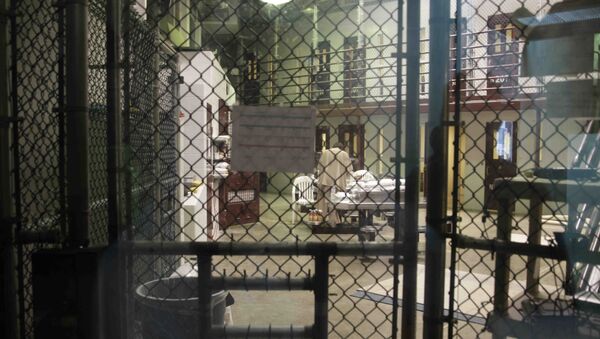The US president explained that he used his veto on the bill because he disagreed on its cuts to the defense budget, prevention of defense reforms, and its opposition to the closure of the notorious Guantanamo Bay prison in Cuba.
The new budget passed by House of Representatives on Thursday is worth $602 billion, and contains a bipartisan compromise cut in spending of $5 billion in order to keep to federal budget caps on both defense and non-defense spending, that have been imposed to reduce the government deficit.
However, the revised bill with regards to Guantanamo remains unchanged, and still contains language which prevents the transfer of prisoners from the facility in Cuba to the US for another year.
"This legislation specifically impeded our ability to close Guantanamo in a way that I have repeatedly argued is counterproductive to our efforts to defeat terrorism around the world," stated President Obama when he vetoed the bill on October 22, describing the prison as "one of the premiere mechanisms for jihadists to recruit."
The president has repeatedly stated his opposition to the detention camp, but his attempts to close the facility have been thwarted by lawmakers in Congress, and approximately 116 prisoners remain in detention there.
On November 4, White House Press Secretary Josh Earnest reiterated the president's opposition to the prison, calling it "incredibly expensive" and something that "plays into the narrative that extremists around the world use to recruit terrorists."
"I would not take anything off the table in terms of the President doing everything that he can to achieve this critically important national security objective," said Earnest, refusing to rule out the prospect of Obama attempting to use his executive authority to close the prison, bypassing the legislature.
"This is a pretty transparent case of the United States Congress putting narrow political interests ahead of national security," said the spokesman.




